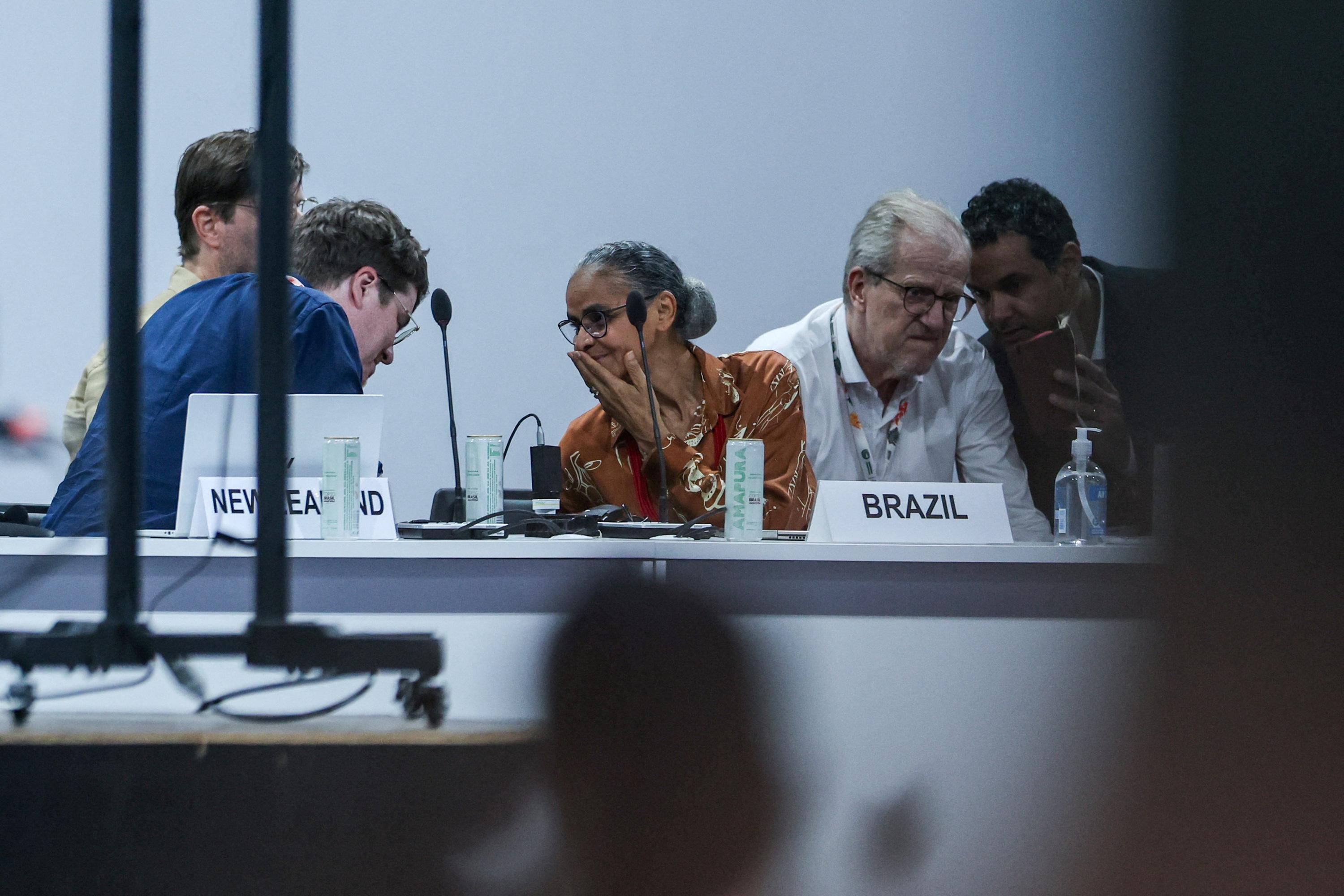COP30 Negotiations Face Deadlock Over Fossil Fuel Phase-Out as European Countries Express Concern
COP30 in Brazil faces a stalemate after the draft agreement omits fossil fuel commitments, drawing criticism from European countries and France’s ecological minister.
- • COP30 negotiations risk concluding without a strong fossil fuel phase-out agreement.
- • European countries, including France, oppose the omission of coal, oil, and gas references in the draft.
- • Indian, Saudi, and Russian opposition blocks fossil fuel commitments.
- • Closed-door talks continue to resolve financial and fossil fuel issues.
- • French Minister Monique Barbut labels the current draft unacceptable.
Key details
The COP30 climate summit in Belem, Brazil, is nearing its conclusion amid a significant deadlock, primarily over the exclusion of references to fossil fuels in the final agreement texts. After two weeks of intense negotiations, the Brazilian presidency released draft decision texts that notably omit mentions of coal, oil, and gas, leading to strong opposition from a coalition of around thirty countries, including many from Europe and Latin America.
European nations fear the summit may conclude without a meaningful agreement on fossil fuel phase-out. The European Union has even considered the possibility of leaving the conference without a deal. French Minister of Ecological Transition Monique Barbut described the current draft as "unacceptable," condemning oil-producing countries such as India, Russia, and emerging economies for obstructing progress. She stressed the urgency of a clear roadmap for abandoning fossil fuels and highlighted the complex negotiations, which also encompass the financial responsibilities of developed countries to assist poorer nations with climate adaptation.
The Brazilian presidency has shifted discussions behind closed doors, engaging selected countries to tackle these thorny issues. Colombia’s Environment Minister, Irene Velez Torres, emphasized that the summit must end with a decisive plan for fossil fuel phase-out. India, Saudi Arabia, and Russia are identified as significant blockers to fossil fuel commitments, complicating efforts to address carbon pollution reduction and climate finance.
With the first-ever UN climate conference held in the Amazon at risk of ending without a major pact, the stakes are high. The failure to secure robust fossil fuel phase-out language and a financial roadmap undermines multilateral efforts to combat climate change and support vulnerable nations.
As COP30 heads toward its close, the ongoing impasse illustrates the challenges of balancing national interests and global climate imperatives, leaving the international community anxiously awaiting whether a compromise can be achieved in the final hours.
This article was translated and synthesized from French sources, providing English-speaking readers with local perspectives.
Source articles (2)
Source comparison
Latest news
Katy Spicher Sues French State for Denial of Justice Over Unsolved 1983 Murder of Her Mother
French Public Sees Rise in Political Violence Amid Pre-Municipal Election Tensions
Businesses Drive French Economy Amid Rising Financial Challenges for Youth
France Climbs to 4th Place in 2026 Winter Olympics Medal Table After Biathlon Relay Gold
XV de France to Field Largely Unchanged Lineup Against Italy in Six Nations
France and India Deepen Strategic Partnership with Focus on AI Regulation and Defense Cooperation
The top news stories in France
Delivered straight to your inbox each morning.


